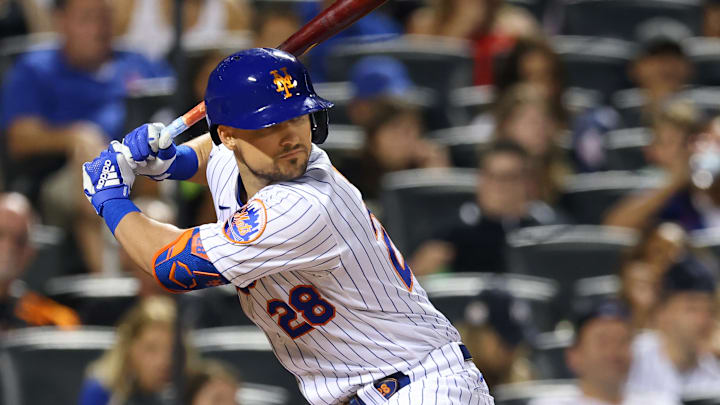As the New York Mets watch the contentious MLB lockout drag on, there is little that the MLBPA and the owners agree on. However, MLB commissioner Rob Manfred mentioned that one thing both sides agreed on was the adoption of the universal designated hitter. Assuming that both sides manage to compromise on an agreement sometime in 2022, that means that the National League will have the designated hitter next season.
Although some National League teams will have a difficult time benefitting from this rule change because of their current rosters, the Mets will not have such a problem and already have several candidates for the designated hitter role on the roster. This article will analyze the case for third baseman J.D. Davis assuming the designated hitter role for the Mets in 2022.
There are three main reasons why Davis would be an excellent choice to be the Mets primary designated hitter. The first reason is that Davis becoming the designated hitter would allow new acquisition Eduardo Escobar to take his natural position in the infield. Escobar is a solid third baseman, and has played that position for several teams during his big league career. The Mets also signed him with the expectation that he would be a regular in the lineup, and because of this, Escobar needs a regular position that would allow him to get the at-bats that the team wants. Taking over third base from Davis makes much logical sense.
The Mets' J.D. Davis is a prime candidate for the designated hitter role for the Mets, given his strengths as a hitter and weaknesses as a defender.
The second main reason is that Davis simply hasn’t been good defensively at third base. Over the past two seasons, Davis has compiled a -1.6 dWAR at the position. Suffice it to say, the Mets could use a defensive upgrade at third base. Escobar provides that, which makes Davis at best the second-best option for the Mets at third. Giving Davis the designated hitter role would improve the team’s defense on the left side of the infield.
The last reason why Davis should be made the designated hitter is that the position would maximize Davis’s strengths. A good part of baseball is putting players in positions to succeed, and that means highlighting their strengths while minimizing their weaknesses. The truth is that Davis has been a solid hitter for the Mets during his three-year tenure. He has compiled a .28/.373/.472 batting line with 33 home runs and 99 RBI over 269 games the last three seasons. It’s hard to leave that type of offensive production rotting on the bench. Therefore, inserting Davis as the designated hitter will keep his bat in the lineup, which could be beneficial for a team that has consistently struggled to score runs.
